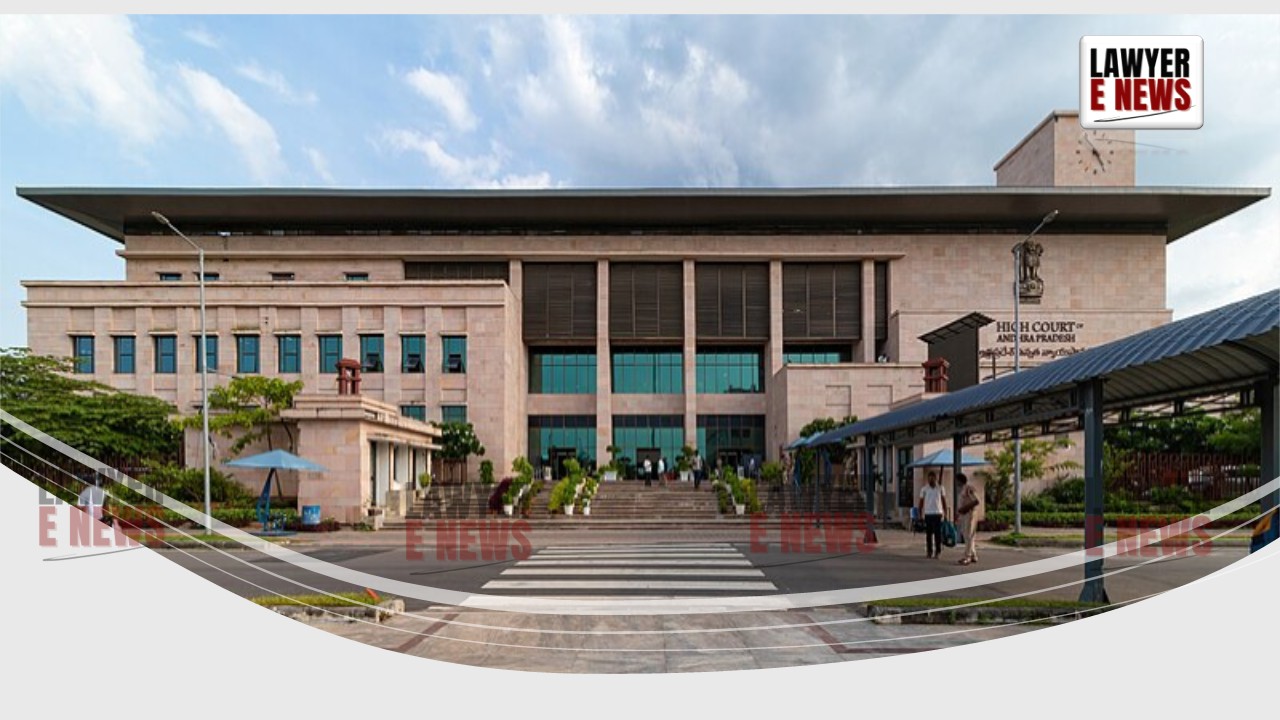-
by Admin
15 February 2026 5:35 AM



Andhra Pradesh High Court dismissed a second appeal upholding the concurrent judgments of the trial court and the first appellate court, which had decreed in favor of the plaintiff, granting a permanent injunction against the defendant. Justice Venuthurumalli Gopala Krishna Rao ruled that the findings of the lower courts were based on admissible evidence, and no substantial question of law had been raised under Section 100 of the Code of Civil Procedure, 1908.
Court's Observation: "Plaintiff's Evidence Proves Possession and Title"
The court emphasized that in a suit for permanent injunction, the plaintiff must prove possession of the suit schedule property as on the date of filing the suit. The plaintiff demonstrated possession through registered sale deeds (Ex.A-1 and Ex.A-2) and evidence of a mortgage with the State Bank of India, which conducted physical verification of the property before granting a loan.
The dispute involved a vacant site measuring 482 square yards, located in Vadlapudi village. The plaintiff, Velaga Rama, purchased the property via registered sale deeds on December 19, 2003, and alleged that the defendant, B. Subba Reddy, attempted to trespass on the property on February 26, 2011. The plaintiff filed the suit for a permanent injunction to restrain the defendant from interfering with her peaceful possession.
The defendant denied the plaintiff’s claims and contended that the suit schedule property was fabricated, alleging that the plaintiff was attempting to grab a different property belonging to third parties, Raghuram and Kiran, in Survey No. 61/9.
The High Court reiterated that its jurisdiction under Section 100 CPC is limited to addressing substantial questions of law and does not extend to re-evaluating factual findings of the lower courts unless those findings are perverse, based on inadmissible evidence, or contrary to law.
Justice Rao observed:
"The concurrent findings of the trial and appellate courts are based on admissible evidence and proper appreciation of facts. No substantial question of law has been raised to warrant interference by this court." [Para 16]
The plaintiff relied on:
Ex.A-1 and Ex.A-2: Registered sale deeds establishing ownership.
Ex.A-4: Proof of mortgage with the State Bank of India, which conducted a physical inspection and granted a loan based on the property’s validity.
Oral evidence: The testimony of P.W.2, who corroborated that the plaintiff had erected barbed wire fencing around the property.
The court held: "Title follows possession in the case of vacant land. The plaintiff’s possession is further corroborated by documentary evidence, including registered sale deeds and the bank mortgage." [Para 18]
The court highlighted several admissions by the defendant (D.W.1) that weakened his case:
The defendant admitted that the suit property (Survey Nos. 64/4 and 64/8) is distinct from the property belonging to Raghuram and Kiran (Survey No. 61/9).
He also conceded that the boundaries of the suit property matched those described in Ex.A-1.
Justice Rao stated: "The defendant’s own admissions confirm that the property claimed by the plaintiff matches the sale deed boundaries, while the property of Raghuram and Kiran is located in a different survey number. These admissions corroborate the plaintiff’s claims." [Paras 19–20]
The High Court found no illegality or perversity in the findings of the trial and first appellate courts. Both courts had correctly concluded that the plaintiff was in possession of the suit schedule property at the time of filing the suit and was entitled to a permanent injunction.
Justice Rao observed: "The trial and appellate courts’ judgments are well-reasoned and based on admissible evidence. There is no error in their findings warranting interference by this court." [Para 21]
The High Court dismissed the second appeal, affirming the judgments of the trial and appellate courts. The plaintiff was held entitled to a permanent injunction, restraining the defendant and his agents from interfering with her peaceful possession of the suit schedule property.
Justice Rao concluded: "The judgments and decrees of the lower courts are upheld. The second appeal is dismissed, and each party shall bear its own costs."
Date of Decision: January 22, 2025
